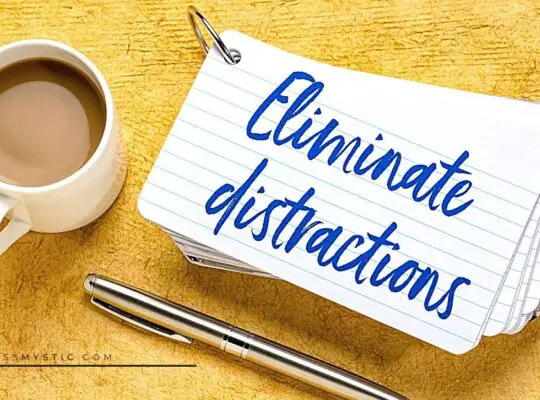It’s Time To Unleash Your Inner Giant…
What is Personal Power?
Personal power is basically defined as your ability to do something, achieve something, or act in a specific way. Your Personal Power: An Examination. Retrieved from Forbes (*), but this isn’t the whole picture.
Power- in and of itself, is defined very similarly in that it is ability or capacity to act or perform effectively. This can apply to anything, anyone, or any situation. Power is the unit of measure for vehicles and tools.
It defines the right or ability to dominate or rule others. And, for those of us with only first world problems, it’s resource we use daily to run our machines, lights, and computers.
Three Different Types of Power
There are three different types of power that stem from the individual and personality.
- Personal Power
- Covert Negative Power
- Overt Negative Power
Covert and Overt negative power are defined more by their negative qualities but differ in how they’re practiced. Covert negative power is based in passive aggression and manifests in behaviors which serve as proof of personal weaknesses, incompetence, and self-destructiveness.
Overt negative power is defined by outwardly aggressive tendencies. This sort of power is most often seen in tyrannical leaders, sociopathic individuals, and people with a personality structure that requires them to constantly seek power through destructive means like threats.
Covert and overt negative power both reflect underlying psychological disturbances and highlight the qualities in individuals that prove to be maladaptive, and counterproductive.
Personal Power is based on your strength, confidence, and competence. Like strength, confidence, and competence, it takes time to develop, build, and learn to use properly. This isn’t a tool that you learn to use by taking one class, can put down after using a few times and then pick right back up after abusing it, or generally ignore. It’s a necessary component of you.
Personal power is your self-assertion, and a healthy need for love and satisfaction. The primary goal of personal power is mastery of yourself, not others, and can only be properly developed through competence, positive personal qualities, and the right state of mind. When personal power is manifested in public view it is seen as generous, creative, and humane personal traits or personality types (Firestone, Ph.D., R. W. (2009, April 12). Personal Power: There is a clear distinction between personal and negative power. Retrieved from Psychology Today*
There are two different ways we demonstrate the positive Personal Power
- Internal- thoughts, feelings, and emotions
- External- the demonstration of power from your voice, body language, and ability to influence in a positive, non-abrasive, way.
You’ve heard about the 80/20 rule, or otherwise called the Pareto Principle. It’s used in a multitude of ways to illustrate that, in many situations, 80% of consequences occur from 20% of the sources. It’s often meant to relay the importance of certain factors over others.
Its initial conceptualization is credited to Joseph M. Juran who suggested the principal and named it after Vilfredo Pareto, who noticed that 20% of the population of Italy owned 80% of the land, and this was also true in other countries.
The Pareto Principle can be applied to communication in that only about 20% of what you say, or what others hear from you, comes from the actual words you speak. The other 80% of your projected communication comes from tone of voice, inflection, posture, body language, facial expressions, and hand movements, or punctuation and point of view in writing.
A schism in communication occurs when your tone of voice does not match your facial expressions, or when the message of your body language and physical actions differs from your tone of voice or purpose. Most of the time, a schism in communication is most prevalent when two inflections contradict each other, as happens with sarcasm, false bravado, insecurity, etc.
This is important to understand because your communication will have an effect on your externally demonstrated personal power. Individuals who lack personal power, or who have it in short supply due to lack of confidence, self-esteem, or experience in any given situation may seek new ways of building up their personal power. One of the most commonly provided suggestions is basically some form of “fake it till you make it.”
Don’t misunderstand: There’s nothing wrong with this necessarily. But, do understand that this requires individuals seeking a start in building personal power to outwardly display an amount of personal power they do not possess so they can use the externalized forces to build up an internal supply of power.
For many people, maybe even you, this might not work. If you’re not capable of faking, role- playing, or putting together creative stories, your place to start may be internally rather than externally.
Then again, for many people, maybe you, the place to start is with both. Internal and External personal power is neither mutually exclusive nor interdependent, though both of these forces can work with each other. It may be that in starting to come to grips with personal power, working on both at the same time is more beneficial in certain situations.
Getting Started
In creating habits that support and grow your personal power it’s important to understand where you’re at in this process, and where you need work. Afterwards is when you decide if you need to focus on internal, external, or both means of demonstrating personal power because demonstrating something that you don’t have, or understand, is always a bad idea in any format.
- Start form a place of honesty
- Assess your current situation
- Build a plan
Be Honest With Yourself
That’s the most important thing. Figure out what kind of power you’ve been using, if at all. Conduct an audit of your most recent behaviors, situations you’ve had to navigate, and how you’ve managed any recent problems- personally and professionally.
This will require some time dedicated to this task so that you can focus on yourself for just a few minutes.
- What was my most recent opportunity to make a decision?
- Did I make a decision using facts available to me and my personal skill set?
- Did I rely on someone else to make the decision for me?
- When was the last time I took time out for personal care or exercise?
- Do I ask for help when I need it?
- Do I have a routine that can rely upon?
These are very simple questions to ask yourself, and it’s a quick assessment. This step of taking inventory of your most recent actions is one that you will want to learn to do and repeat periodically because it will help you fine tune behaviors as you continually develop and grow your personal power.
Assess Your Current Situation
- Do you read daily?
- Do you practice the same sort of advice you offer?
- How reliant are you on other people?
- How well do you demonstrate gratitude?
- how often do you exercise?
- How often do you allow your creativity out?
- When you are presented with a situation how often do you focus on the problem?
- How often do you focus on the next step in working on the solution?
- What are your long-term goals?
- Are you productive or busy?
- When you eat, your choices healthy or convenient?
- How many times in the recent past, or in your past in general, have you talked yourself or someone else out of a dream or goal?
- Do you treat your body like it’s a holy temple, or a replaceable product?
Take a few moments for self-reflection and answer each question honestly. Each and every one of the components within the questions above aren’t just measures of your personal power. They’re external and internal components that you feel, and project outwardly to people around you. Find out what other’s think about you in relation to some of these questions by asking them.
Use the answers you gave, or the answers others gave you, to pin point where you fall short, miss the mark, or otherwise just need to develop a bit more.
Personal power is kind of like a knight’s sword. This is your personal weapon of choice in defending yourself. It’s a unit of measurement that we all feel when we weigh our self-worth. It’s a life skill that needs to be developed and sharpened over time, but also, it has to be maintained.
Habits To Incorporate
Within this structure of keeping up your ongoing development of personal power, there are some daily habits that will help. This is only a partial list because there’s no such thing as a complete list. Every person has different needs in development and growth.
These are some generic examples most often utilized. Once you’ve completed your assessment, you’ll build a plan. That plan can include some or all of these examples, as well as some other personalized choices you find you need after your assessment.
Remember, your personal power is measured by your confidence, strength, and competence. It relies heavily on your honesty, and resilience as life skills.
Acknowledge Your Ambition And Goals
Many people struggle with this because some parts of our society try to teach us that ambition is a bad thing.
Only greedy people give real weight to their ambitions or put their goals above certain acts.
But wait! This isn’t true. Your ambitions are your dreams. They’re the goals you want to achieve, and the things you want out of life.
Also, acknowledge that others around you have their own ambitions and goals. Don’t spend time poking holes in the dreams of other people, even if you think them ridiculous. Instead, focus on ways you can achieve your ambitions, or help the people around you to do the same.
By positioning yourself as someone who can, or at the very least is willing to, help others and showing respect and pride in the work and achievements of your co-workers or significant others, you invite them to do the same for you. This will allow the people around you to see you as someone who expresses gratitude, and who is worthy of a return in respect.
Speak Out And Self-Talk
Remember how confidence is a key component in personal power? This is because your ability to do something ultimately depends on confidence. You can have the skill-set and experience to complete a task, but if you lack self-confidence, you’re going to decide that trying isn’t even worth the effort. This is why self-talk is important.
We all talk to ourselves. Studies have shown that self-talk can make the difference in how efficient and effective you are in completing a task (Kirkham, A. J., Breeze, J. M., & Mari-Beffa, P. . (2012). The Impact of Verbal Instructions on goal-directed behaviour. 139(1), 212-219. Retrieved from Science Direct
Here’s the thing though: It has to be positive.
That voice inside your head that tells you you’re “no good at anything ever” needs to be gagged, bound in a tarp, wrapped with chains, weighted with cinder blocks, and dropped to the deep dark depths of Davy Jones locker. The reason for this delightfully detailed scenario is because this is exactly what you’re allowing that voice to do to you every time you allow it to speak unchallenged.
Whenever you start in on self-talk, take a moment to explore how you’re speaking to yourself. Would you say that to a best friend? If your answer is no, then you should not be saying it to yourself. Challenge your inner voice, and find a way turn your self-talk into a positive power tool in your personal arsenal.
How you speak for yourself is just as important. If someone is bullying you, stand up for yourself in a way that is effective and does not turn you into the bully. Don’t get into a screaming match, make threats, or bring up past bad behaviors. Those are unfair fighting tactics and will only serve to make you look like the overt bully with psychological issues.
Standing up for yourself can be difficult because this is a skill that takes a lot of time to practice just to get the basic courage to take the first step, and then it takes even longer to perfect so that it can be effective. Some people have this skill naturally, others have to work on it because speaking up for yourself against a bully takes resilience.
If you have an idea during a group meeting or are working with others to brainstorm for a project, then share your ideas. This can sometimes be difficult in the same way that owning your ambition can be, and for the same reason.
Speaking over people, or rudely dismissing others because you value your voice over theirs is bad and shows aspects of that overt negative power mentioned earlier. But, positively sharing your ideas plants those seeds of thoughts with others that they can depend upon you for ideas, some of them good, from time to time which builds their confidence in you, and their ability to respect you overtly.
Speaking up when you have an idea, sharing your ideas, or generally speaking up for yourself in a positive and beneficial way is a good way to practice that external expression of personal power.
When your ideas are listened to, or when you effectively stand up for yourself against a bully, you give your confidence a small bump or boost which helps with your internalized personal power growth. In this way, you can work on developing internalized, and externally shared personal power.
Keep Your Power And Never Give It Away
This is sometimes one of the most difficult things for people to grasp and do when it comes to their personal power.
- Does a co-worker just drain all of your energy throughout the day?
- Do you have a sibling or significant other who just brings out he worst in you?
- Do you have a neighbor who just makes you so furious that you stoop to leaving passive-aggresive thank you letters?
- Do you get mad at customer service when you’re kept on the line for very long?
If you’ve answered ‘Yes’ to any one of the above questions, or questions that are similar, you’ve given your power away. Any time you allow a bully to make you feel less than what you know yourself to be, to steam-roll you, or any time you fail to speak up when you have an idea to share you’ve given your power away. It’s time to take it back.
The importance of keeping your personal power cannot be understated. Every time you give it away, that loss eats at your self-confidence and esteem just a little bit more.
Do it enough, and eventually you won’t have any personal power left to grow or develop? You’ll find yourself looking for where it went and trying to pick it back up in tiny pieces. Let that image settle in your brain for just a moment.
Recognize the ways and times you surrender your personal power, address them, and make the appropriate adjustments.
- Don’t waste time or energy complaining
- Accept responsibility for your emotions and actions
- Establish interpersonal boundaries
- Forgive
- Understand your value structure
- Let unproductive thoughts pass by without wasting time on them
- Avoid victim mentality, self-talk, and language
- Don’t depend on the opinions of others as a measure for your self-worth
- Be willing to stand out a bit
Wasting time or energy complaining is a pointless task. There is a huge difference in complaining about a situation and solving a problem within a situation. The difference is perspective. Effective people with developed externalized personal power are able to see a problem or bad situation just like everybody else.
What makes them stand apart is the fact that these people don’t focus on the problem. They focus on the solution, and are constantly asking themselves, “What’s next?”
Your emotions are your own. You may not like a situation you find yourself in, but how much that affects you internally is entirely up to you. Take responsibility for your actions and emotions. Never allow someone else the power to dictate how you feel in a given situation.
If you find a significant other or co-worker treating you in a way that makes you uncomfortable, it’s time to take responsibility- which is different from blame. Set boundaries with others that you are comfortable with. Don’t allow your mother-in-law to just walk into your house at all hours if that makes you uncomfortable.
Don’t allow someone to take passive-aggressive jabs at you unchecked if that bothers you. Set boundaries and expect others to respect those boundaries. You have that power and right.
When someone does cross a line that you are uncomfortable with, don’t hold it against them forever. Understand the power of forgiveness. Yea, that sounds cliché, but it’s true. Forgiveness is not an acceptance of their behavior, nor is it in any way something that says what they did was ever okay.
Forgiveness of others is for you and you alone. When you withhold forgiveness, by the very nature of this particular beast, you have to waste energy and time holding onto a grudge. In the process, you’ll start a process of negative self-talk, complaining, and dependence on others for self-worth. Just let it go and forgive. Also, understand that forgiveness does not always repair a broken relationship, but it does allow you the room and permission you need to heal yourself.
Understanding your value system and where you stand is important because if you stand for nothing, you’ll fall for everything. If that sounds like a bad country song, that’s because it is the intro line to the main chorus of a country song.
Regardless, it’s true.
If you don’t know what your personal values are then you’ll find yourself being led down every path by everyone who’s ever known you. These people may genuinely be trying to help, and have the best of intentions, but you don’t want to find yourself at an anti-fracking rally if you really don’t have a personally invested opinion or stance on the issue.
Allowing your thoughts to wonder without direction wastes time. For some of us, especially those of us with something like ADD, this can be a difficult hurdle to avoid. However, some effort should still be put into this particular skill for the same reason you want to avoid complaining and using victim language.
Complaining implies that you have no control over your situation. Only powerless people genuinely believe this, and because they believe this, they allow it. Phrases like, “I have to work with this guy who I can’t stand,” or “I have to take my dog to the park today,” implies that you have no control over the situation, or how you feel about them, and that you can’t change the situation.
This also leads people to measure their self-worth by what others think of them. What other people think of you is a reflection of them, not you. Remember that the next time you walk into a room and your co-workers or in-laws fall silent. They’re wasting their time on idle gossip and will likely turn on each other in the future because of their lack of value structure. People who gossip about others are betting their self-worth on how much they can bring to the gossip circle, so when they have nothing new, the rest will turn on their own kind.
It’s a gruesome life-cycle, and if you doubt the truth in this, you’re welcome, and encouraged, to conduct a study of your own observation.
There is an old Chinese proverb that says that the tallest tree will experience the strongest winds. This means that anyone who stands for individuality will have to stand up to more adversity. This is completely true. However, the more you develop and grow your external expression of personal power in a positive way that commands respect, the more resilience you will have to weather these attacks.
Self-doubt, and fear will only help negative personalities chop you back down to size, or worse yet, turn you into minced meat. Trying to conform to a crowd’s standards rather than being a unique individual is stagnating and stifling. In the end, you must be able to trust who you are.
Take Care of Yourself
We live in a society where self-care is often equated with being selfish. This couldn’t be further from the truth if it was loaded into a rocket and launched into the sun. How you take care of yourself affects the people around you.
Self-Care includes:
- Personal hygiene
- Proper nutrition
- Regular exercise
- Fixing your hair
- Doing your nails
- Walking your dog
Seriously.
Personal hygiene covers things like the minimum number of showers per week, the obligatory deodorant, brushing your teeth, and cleaning behind your ears. Fixing your hair and doing your nails seems a little extra to some, maybe even indulgent. But, consider this: When you meet people who externally present a powerful persona, do they have bed head, dirty nails, nails bitten to the quick, or any kind of shabby appearance in these “indulgent” areas?
No, they don’t.
The reason is that people who exercise, use, and develop their personal power understand the value of self-confidence. Dressing well, styling your hair, having it cut from time to time, getting a basic manicure (even without the polish), and being presentable isn’t about the people who are going to see you throughout the day. You don’t do all of that work on yourself to impress others because having personal power means not relying on others for that sense of self-worth.
Taking that extra bit of care of yourself is for you.
The same rule applies to working out regularly. Who cares if you’re a few pounds overweight? Mostly just you. Some very overtly negative people might have something bad to say about your weight, and covertly negative people will have an opinion but be too scared to voice it. None of this matters.
Yes, there is a data set which suggests that keeping your body within a certain weight range for your height, gender, and age is healthy, but health is also measured in other ways.
Maybe you can’t run like a lot of us. Can you walk? Can you go to the gym? Do you have a fitness app? If not, there are plenty available that show-case a number of great 5-minute daily workouts. Find something you can do, that you enjoy doing, and do that. Don’t exercise to fit into someone else opinion of what you should look like. Exercise daily because your body will love you for it, and because that little bit of extra love will encourage your internal power growth and development.
On that same note, make sure what you’re eating is healthy. Too many people underplay the value of nutrition. What you eat is your fuel source. Do you really want to be fueled by convenient crap, or healthy nutritious food? Ultimately, your lifetime diet will dictate your state of health since this is a cumulative effect, not something that happens in a vacuum.
You won’t wake up tomorrow super skinny because you fasted today, nor did you wake up morbidly obese today just because you had cake after dinner last night. Your body and overall health are a reflection of your cumulative eating habits over the years.
Pay attention to that and give yourself some love by paying attention to nutrition and exercise. Also, give yourself some grace when you eat that cake. Maybe you deserve it every now and then.
Make A Decision
The last habit that’s going to make this list of daily habits that support and grow your personal power is decision making.
Many people suffer from a thing often referred to as Decision Paralysis. Have you ever asked your significant other what they want for dinner only to be answered with; “I don’t know. What do you want?”
Infuriating isn’t it?
With the overabundance of choices, we’re all offered on a daily basis, sometimes it can be overwhelming to make a decision simply because wading through the options feels more like drowning in them. If it helps, narrow down your list based on your specific value and preferences. When you’re asked to make a decision, make one. If it’s the wrong decision you’ll quickly find out, and probably be blamed.
Don’t let this discourage you. Part of developing personal power is understanding that, no matter how much power you have, you will still have a bad day from time to time or make a wrong choice. That personal power you’ve been working so hard on is one of the things, besides resilience and confidence, which you will need to have in your arsenal to depend upon. Doing so requires making another decision.
An inability to make simple decisions leads to a dependence on others which decreases your sense of self-worth and confidence. Even if you’re terrified of making the wrong choice, you should still make a decision. At the very least, it will be a valuable learning experience.
Make A Plan
Supporting and growing your personal power is not a linear process. It’s a spiral that you hopefully climb up each time you revisit your situation and take an assessment rather than one you lose control of. Use these daily habits to grow your personal power and grow as time progresses.
Once you’ve built a plan and have started to execute that plan, you may need to go back and look at your internal and external expressions of personal power, look for flaws that need to be repaired, and assess yourself for damages.
This is important because how effective you are at assessment and honesty is going to affect how well you are able to manage the upkeep on your personal power. This is an ongoing and ever evolving process.
Remember that this is not a task with a solid beginning and ending date like a commissioned project, or chore. This is something that is available to you now which requires consistent positive upkeep and development.
The good news is that by accepting this, you will be better able to utilize your personal power in your next work meeting, girls’ lunch, the next time your child throws a tantrum, when a store associate is rude, or in any number of situations. You can also grow and develop your personal power in nearly any way you see fit, so long as it benefits you.







